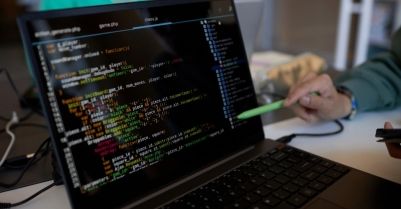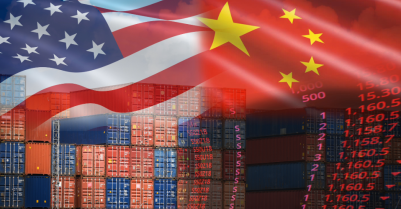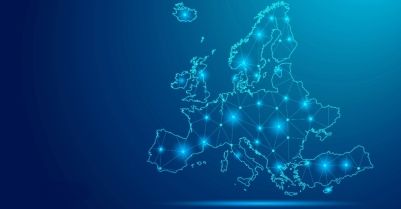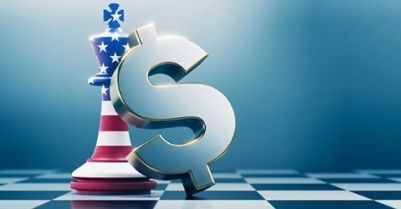-
View article
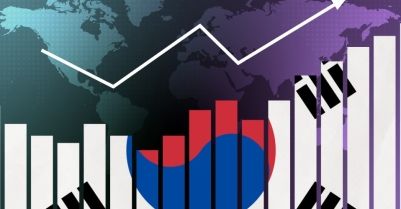 #Economy
#EconomySouth Korea: a year after the political crisis, markets are buying the promise of stability
2025/12/17
- #Eco-trends
- 2020/03/03
- 0
-
23
The power of "animal spirits"
We don’t know when China’s output will hit bottom. We can’t anticipate how far the epidemic will spread, what impact it will have on supply chains or the extent to which it will spark political crises of confidence. Just how deep into the corridors of the Chinese Communist Party or the US Congress will the virus penetrate? In short, we are in the midst of what Keynes called radical uncertainty, which makes it impossible to quantify the probability of risk. This is a time when “animal spirits”1 will awaken and preside over forthcoming investment decisions.
Remember that, while these “animal spirits” would support our vision of the future by replacing uncertainty with confidence, they also produce overall expectations that are so powerful that they begin to organise our thinking and become self-fulfilling. Such expectations, known in institutional economics as “conventions”, emerge at the macroeconomic level. They are what shape reality, and it is thus them that we must study. For, however long it might take tourists to forget their worries and return to Thailand’s beaches, new conventions are emerging. In this sense, although the margin of uncertainty is extreme in the short term, we can distinguish a few factors that will be decisive over the long term.

Deglobalisation story
The first such factor is that the idea of globalisation as an implacable mechanism is falling apart. The topic of deglobalisation (even if partial and slow) is in all the papers today and will be on the table in strategy departments tomorrow. Note, however, that this change had been brewing for years. It’s a slow but inevitable shift in the frame of thought – what Hannah Arendt called a crisis in culture. The 2009 crisis pointed out the macroeconomic risks of financial globalisation. Then, the rise to power of anti-establishment parties highlighted the political limits of a globalisation that deepens social, geographical, cultural and generational inequalities and divides. Lastly, the hegemonic clash between the United States and China reveals the decoupling of strategic activities. Everything is converging, then, and COVID-19 is simply speeding up the process: what we are seeing is a systemic problem, not a situational one. Whether or not it’s true matters little: what matters is which way the consensus is leaning. The deglobalisation story has begun.
The second convention that is becoming apparent is that this questioning of the established order will originate in a reorganisation (even if partial, slow and limited to certain sectors) of the supply chain, whose global reach, combined with its concentration in Asia, had become one of the drivers of globalisation. The value chain will firstly be called into question via strategic sectors, with the virus making clear in the space of a few weeks what this term really means: the issue is not “only” one of national security, state autonomy or the power of nations (as Donald Trump had so delicately reminded us). The issue is, first and foremost, the economic security of citizens: we must be able to look after ourselves without China’s help. There will thus be talk of 5G and energy, but also of medicines, food and essential commodities. Above all, the list of sectors has grown. There will be talk of incentives to return to one’s country of origin, regulation, taxation, even production control. In all these areas, the public safety card will trump concerns revolving around corporate earnings and costs.
Rethinking the supply chain
Behind economic security are governments’ social contracts with those who elect them. Whether or not a regime is authoritarian, the question of its legitimacy is the same: can the state meet its citizens’ need for security? Russia, for example, has written the idea of economic security into its constitution. Anti-establishment parties will obviously find this kind of thinking a fertile breeding ground in favour of withdrawing into closed national spaces, and Recep Tayyip Erdo?an has quickly understood that, during a virus outbreak, the refugee question can be used to whip up hysteria. This may be a macabre form of blackmail, but it is also a shrewdly calculated move: we are now living in the age of walls. Poor Erasmus; poor Schengen Area. Border story2… And, at a deeper level, we are undoubtedly living in a time when economics is being reabsorbed into politics, as Karl Polanyi wrote in The Great Transformation.
Furthermore, strategic sectors will not be the only ones affected by the need to ask questions about the supply chain. All globally integrated sectors will be affected, since the virus has lifted the veil on the other face of Janus, the two-faced Roman god: the risk of systemic shocks being transmitted along the value chain, through the channel of supply. Since the Asian crisis, most currencies are flexible and better at absorbing external shocks. But the risk of shortages grabs people’s attention and puts pressure on production capability, and flexible currency will not do much to change this. And, as has rightly been noted, while supply disruption may have been triggered by COVID-19 this time around, next time it could be triggered by geopolitics or the environment.
Lastly, to conclude with some thoughts about what the long-term legacy of this crisis might be, remember that COVID-19 will be not be geopolitically neutral: since tensions can mount via multiple channels – unless, by some miracle, nations find kinship in sickness. At this stage, though, the overwhelming likelihood is that citizens will become increasingly hostile P/E towards foreigners, the West will become increasingly hostile to China and China will become increasingly hostile to all the countries that have abruptly withdrawn and slammed shut their doors. And domestic crises of confidence will prompt leaders to seek legitimacy in external conflict. And America will be tempted to take advantage of the weakness of its hegemonic competitor. And… In short, this is a geopolitical story. But we already knew that.
1 “[A] large proportion of our positive activities depend on spontaneous optimism rather than on a mathematical expectation, whether moral or hedonistic or economic. Most, probably, of our decisions to do something positive, the full consequences of which will be drawn out over many days to come, can only be taken as a result of animal spirits – of a spontaneous urge to action rather than inaction, and not as the outcome of a weighted average of quantitative benefits multiplied by quantitative probabilities.” (Keynes, General Theory)
2 In his biography of Erasmus, Stefan Zweig wrote, “Instead of listening to the vain pretensions of petty kings, followers and national egoisms, the mission of the European is, on the contrary, to always insist on that which binds and unites peoples, to affirm the supremacy of the European over the national, of humanity over the fatherland, and to transform the conception of Christendom, considered as a purely religious community, into a universal Christendom, a humble, helpful and devoted love for humanity.”
Tania Sollogoub - Tania.sollogoub@credit-agricole-sa.fr


